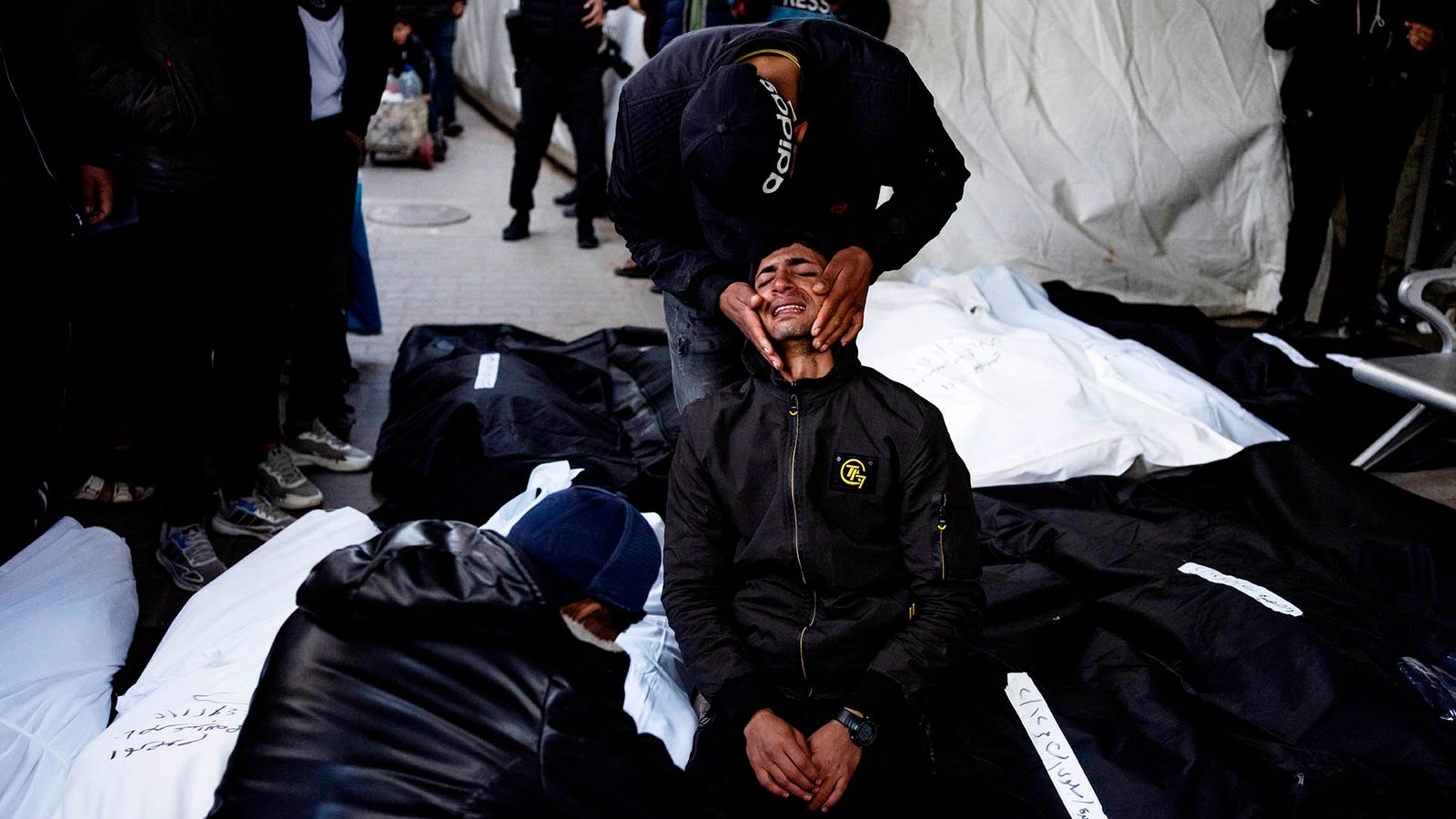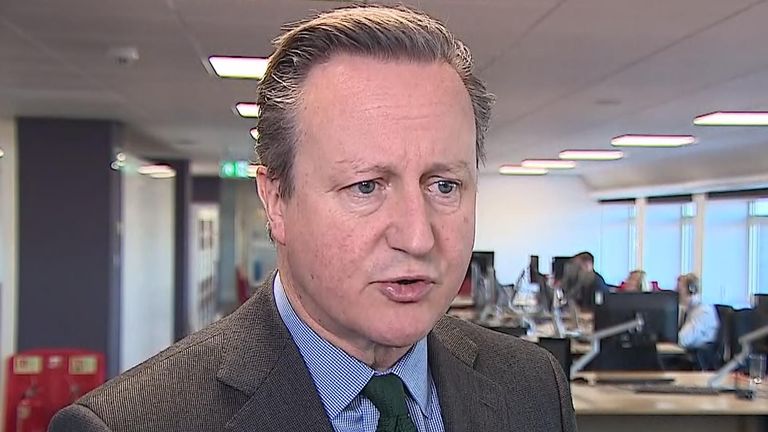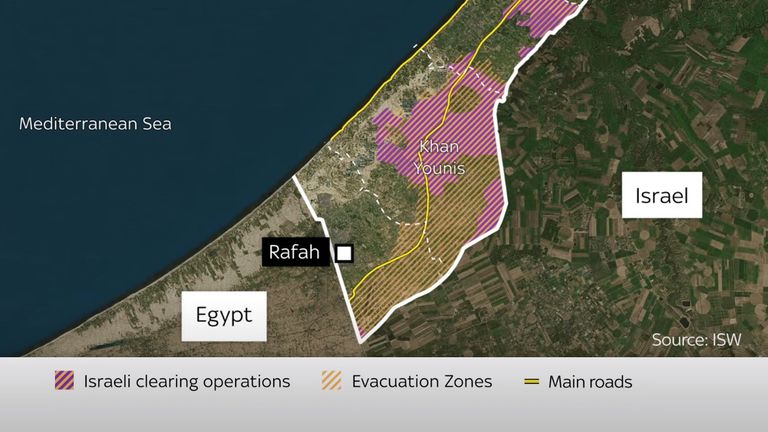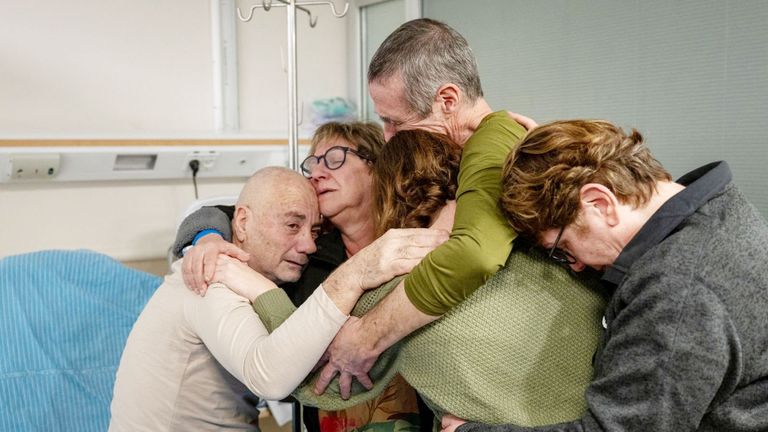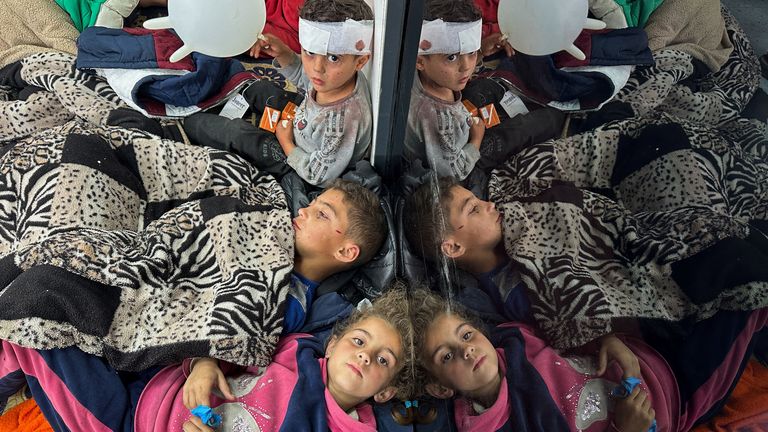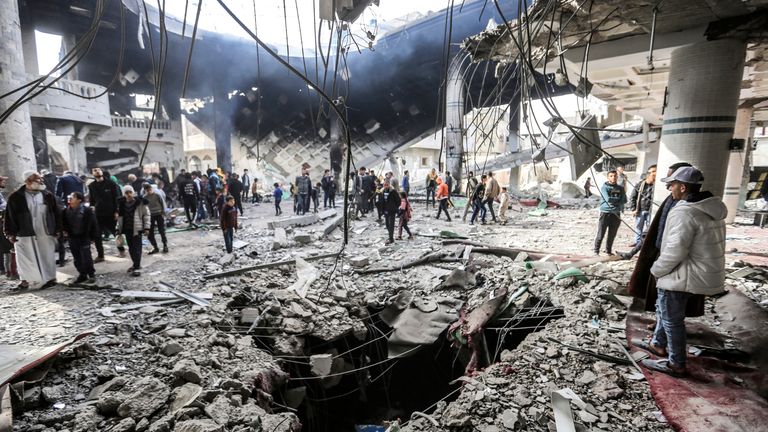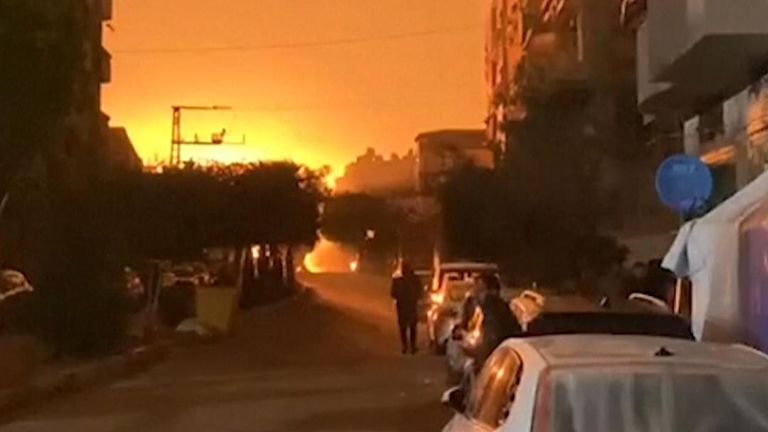Israel should “stop and think” before taking any further action in Rafah, Foreign Secretary Lord Cameron has said – as the UK sanctioned settlers in the West Bank.
The former prime minister said the UK was “very concerned” about the situation on the Gaza-Egypt border.
Local health officials have said 37 people were killed in strikes on the city.
Middle East latest: Biden reportedly insults Netanyahu in private
Meanwhile, four Israeli settlers in the West Bank accused of human rights abuses were sanctioned by the UK.
Moshe Sharvit, Yinon Levy, Zvi Bar Yosef and Ely Federman are now subject to a UK assets freeze, alongside travel and visa bans.
The Foreign Office said Israel’s “failure to act” had led to “an environment of near total impunity for settler extremists”, with violence in the West Bank reaching record levels in 2023.
Lord Cameron said: “Today’s sanctions place restrictions on those involved in some of the most egregious abuses of human rights. We should be clear about what is happening here.
“Extremist Israeli settlers are threatening Palestinians, often at gunpoint, and forcing them off land that is rightfully theirs.
“This behaviour is illegal and unacceptable. Israel must also take stronger action and put a stop to settler violence. Too often, we see commitments made and undertakings given, but not followed through.
“Extremist settlers, by targeting and attacking Palestinian civilians, are undermining security and stability for both Israelis and Palestinians.”
Sustainable ceasefire calls
On the situation in Rafah, the foreign secretary said it was “impossible to see how you can fight a war amongst these people”, referring to the civilians in Gaza.
“There’s nowhere for them to go,” he added, with the border crossing to Egypt shut.
“We want Israel to stop and think very seriously before it takes any further action.
“Above all, what we want is an immediate pause in the fighting – we want that pause to lead to a ceasefire, a sustainable ceasefire without a return to further fighting.”
The Israeli military said it had conducted a “series of strikes” in southern Gaza on Monday.
It said the strikes had now concluded, without elaborating on the targets or assessing the potential damage or casualties.
Hostages freed
Israel later shared that two hostages had been rescued by special forces from Rafah.
The army named them as Fernando Simon Marman, 60, and Louis Har, 70, both taken from Kibbutz Nir Yizhak in the 7 October Hamas attacks.
Israel says it has expanded its ground operation in southern Gaza to root out Hamas fighters.
On Sunday, US President Joe Biden warned Israel against launching a ground invasion of Rafah without a “credible” plan to protect civilians.
Israel’s prime minister, Benjamin Netanyahu, later appeared defiant, telling the media: “We’re going to do it. We’re going to get the remaining Hamas terrorist battalions in Rafah.”
Escalating crisis
Mr Netanyahu said the Israel Defence Forces (IDF) believe four Hamas cells are operating inside Rafah.
But he gave assurances that the IDF would only carry out the operation “while providing safe passage for the civilian population”.
Egypt, which operates the border crossing at Rafah, said an offensive would violate international law and risk a refugee crisis spilling into their nation.
Qatar also warned of disaster while Saudi Arabia warned of “very serious repercussions”.
Following the 7 October attacks carried out by Hamas last year, Israel told those in Gaza to move south to areas like Rafah as troops entered the region.
Some 1.4 million Gazans have now relocated there, mostly in makeshift camps or ‘tent cities’.
An Israeli government spokesperson suggested civilians could find refuge in tent camps that are yet to be built, and said the international community was “more than welcome” to send shelter equipment.
Read more:
The scale of Rafah’s vast tent city
Inside Gaza’s tunnel network and hostage cell
Israel prepares for possible war with Lebanon
Eylon Levy told Sky News: “We want civilians to get out of harm’s way. We don’t want to come in all guns blazing because we understand how catastrophic that would be.”
Asked where the more than one million civilians in Rafah should go, Mr Levy said: “That is part of the plan that the Israeli army will have to present [to] the prime minister because we take our obligations under international law to keep civilians protected very seriously.
“There are open spaces in Gaza, there are places where it is possible to set up tent encampments so that civilians can get out of harm’s way and not allow Hamas to use them as human shields.”
